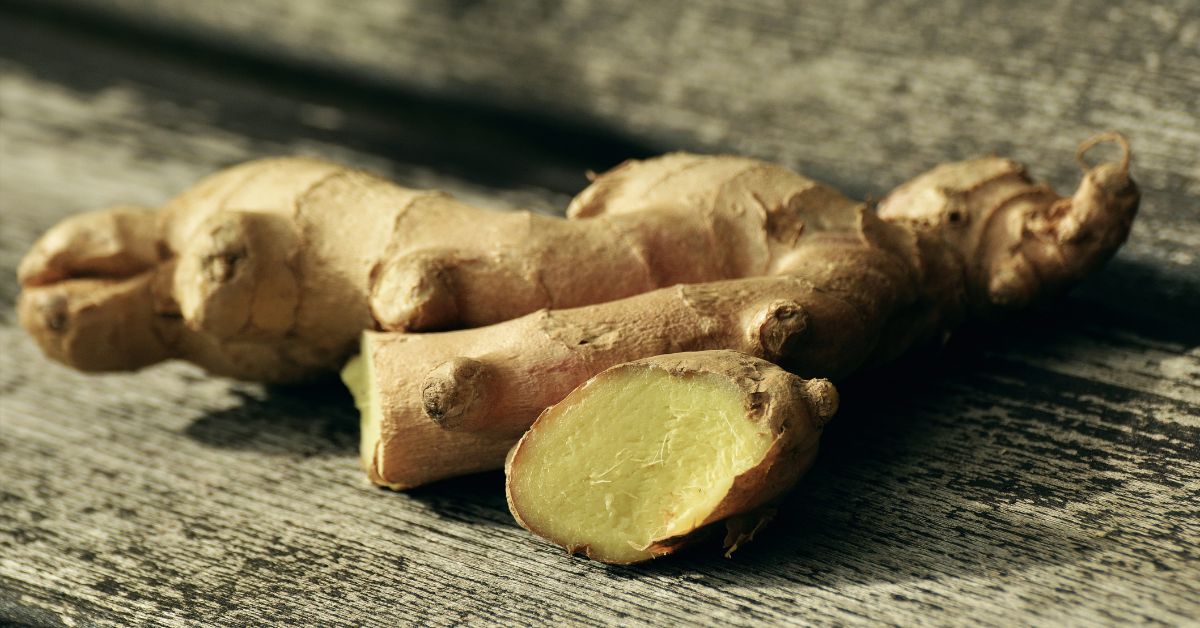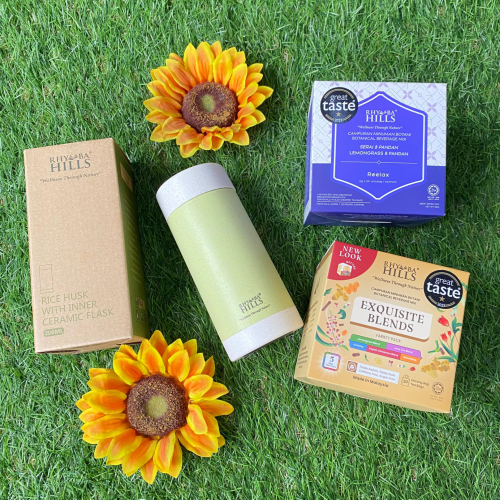As we go through the day, at some point, our energy might decrease. Our energy level will not remain the same from morning to night. So what can we do to refresh and revitalise ourselves when our energy dips? Here are some tips to help you get an instant energy boost.
I. Mid-day workout
Do you always feel tired in the afternoon? Perhaps a mid-day workout during lunchtime might be the pick-me-up you need to help you get through the day. Working out is not only confined to a gym or sports centre. During the pandemic, you can have regular workouts in the comfort of your own home. You can exercise following YouTube videos or join a virtual workout session. Since gyms are closed during the MCO and EMCO periods, many fitness instructors have made their classes and workout sessions available online. Ask your favourite fitness instructors about joining their virtual group workouts today.
Besides that, a session of yoga could also be beneficial. A 2011 study stated that yogic practices enhance muscular strength and body flexibility, promote and improve respiratory and cardiovascular function, reduce anxiety, stress, depression, and chronic pain, improve sleep patterns, and enhance overall well-being and quality of life. Yoga instructors are offering their classes online too during the pandemic. Sign up for your favourite yoga instructors’ virtual classes today.
Some fresh air and a walk would be beneficial too. In a study by Robert E. Thayer, he found that a walk can help to increase energy and decrease tension for 2 hours after the activity.
II. Power Nap
A lunchtime nap can help to refresh you if you feel sleepy, but how long should you nap? The nap should be long enough to be refreshing but not too long till you wake up groggy. Power naps of 10 to 20 minutes are considered ideal. A 2019 study found that napping led to significantly better memory than just taking a break (without a nap).
III. Eat Right and stay hydrated
Do not skip your breakfast, which is regarded by some as the most important meal of the day. According to a 2018 study, it has implications in weight control, cardio-metabolic risk factors and cognitive performance.
Avoid foods that are high in sugar and opt for foods that have mostly complex carbohydrates, as they will help to keep you full for longer. In a study by Robert E. Thayer, he found that a sugar snack was associated with significantly higher tension after 1 hour, and a pattern of initially increased energy and reduced tiredness, followed 1 hour later by increased tiredness and reduced energy.
Complex carbohydrates are made up of longer molecules of sugars, which the body takes longer to digest. The slower break down means the glucose will be released at a more consistent rate, instead of highs and lows. This will stabilise your sugar level better throughout the day.
You should also stay hydrated. You do not need to drink eight glasses of water per day, but you do need to drink water regularly. Thirst is a sign that your body needs water. So, drink up. Dehydration can have adverse effects on both physical and mental performance. According to a 2011 study, mild levels of dehydration can disrupt mood and cognitive functioning, such as reduction in concentration, alertness and short-term memory.
IV. Energising drinks
Most people think of coffee as a pick-me-up drink they need more than once a day. However, after the effects of the caffeine high wear off, your energy might dip even more. So how many cups of coffee can one drink in a day? According to the United States Food and Drug Administration (FDA), 400mg a day is general safe for healthy adults, which is equal to four to five cups of coffee. However, sensitivity to caffeine varies among people, so the effects will vary too, depending on how long it takes the body to break down the caffeine. Caffeine is not only found in coffee, but is also present in tea and cacao.
Besides that, energy drinks contain stimulating compounds, and one of them is usually caffeine. They also contain other compounds such as sugar, other sweeteners, herbal extracts, taurine and amino acids, depending on the brand. A 2015 study that discussed the benefits and adverse health effects of energy drinks concluded that although they may have beneficial effects on physical performance, these products also have possible detrimental health consequences.
V. Non-caffeinated drinks
For people who are sensitive to the effects of caffeine or would like to reduce their caffeine dependency, they can opt for decaffeinated coffee and other energising beverages that do not contain caffeine.
Ginger has been consumed widely for its nutritional and health benefits. A book on herbal medicine stated that ginger has oleoresin (oily resin) from the rhizomes (roots) that contain many bioactive components. According to a 2020 study, among its many benefits, ginger has been shown to improve cardiovascular function and reduce inflammation. This will help to improve blood flow and increase the supply of oxygen, hence keeping your energy levels up. Ginger also helps to stabilise blood sugar levels, which will help to prevent a low-energy crash.

Ginger can be consumed fresh or dried, and even in powder form. It is commonly brewed in tea to aid in digestion and provide an energy boost. Rhymba Hills® Reefresh and Rhymba Hills® Reevitalise (click on the links to purchase) tea drinks contain pure Bentong Ginger and are available in sachets for convenient consumption. Just add to water to brew yourself a fresh cup of invigorating tea.
So what are you waiting for? Try some of these tips to avoid an energy slump and improve your energy levels today.
Rhymba Hills Botanical Infusion x Jadi Batek Clutch Pouch (Visit Malaysia Year 2026)
GiftsRM65.00Original price was: RM65.00.RM60.00Current price is: RM60.00.Rated 0 out of 5Chinese New Year 2026 Money Pouch Set A
GiftsRM95.00Original price was: RM95.00.RM88.00Current price is: RM88.00.Rated 0 out of 5Chinese New Year 2026 Money Pouch Set B
GiftsRM135.00Original price was: RM135.00.RM128.00Current price is: RM128.00.Rated 0 out of 5Christmas Box 2025
GiftsRM120.00Original price was: RM120.00.RM99.00Current price is: RM99.00.Rated 0 out of 5
References
Ahmed Abdulrahman Alsunni. 2015. Energy Drink Consumption: Beneficial and Adverse Health Effects. International Journal of Health Sciences. 9(4): 468–474. PMCID: PMC4682602. [online] <https://www.ncbi.nlm.nih.gov/pmc/articles/PMC4682602/>. Accessed on 21 July 2021.
Ann M. Bode and Zigang Dong. 2011. Chapter 7: The Amazing and Mighty Ginger. Herbal Medicine: Biomolecular and Clinical Aspects (2nd edition).[online] Available at: <https://www.ncbi.nlm.nih.gov/books/NBK92775/> [Accessed on 21 July 2021].
Barry M. Popkin, Kristen E. D’Anci, Irwin H. Rosenberg. 2010. Water, Hydration and Health. Nutrition Reviews. 68(8): 439–458. doi: 10.1111/j.1753-4887.2010.00304. PMCID: PMC2908954. [online] <https://www.ncbi.nlm.nih.gov/pmc/articles/PMC2908954/>. Accessed on 21 July 2021.
Catherine Woodyard. 2011. Exploring the therapeutic effects of yoga and its ability to increase quality of life. International Journal of Yoga. 4(2): 49–54. doi: 10.4103/0973-6131.85485. PMCID: PMC3193654. [online] <https://www.ncbi.nlm.nih.gov/pmc/articles/PMC3193654/>. Accessed on 21 July 2021.
Michael J. Gibney, Susan I. Barr, France Bellisle, Adam Drewnowski, Sisse Fagt, Barbara Livingstone, Gabriel Masset, Gregorio Varela Moreiras, Luis A. Moreno, Jessica Smith, Florent Vieux, Frank Thielecke, Sinead Hopkins. 2018. Breakfast in Human Nutrition: The International Breakfast Research Initiative. Nutrients. 10(5): 559. doi: 10.3390/nu10050559. PMCID: PMC5986439. [online] <https://www.ncbi.nlm.nih.gov/pmc/articles/PMC5986439/>. Accessed on 21 July 2021.
Samy Sayed, Mohamed Ahmed, Ahmed El-Shehawi, Mohamed Alkafafy, Saqer Al-Otaibi, Hanan El-Sawy, Samy Farouk, Samir El-Shazly. 2020. Ginger Water Reduces Body Weight Gain and Improves Energy Expenditure in Rats. Foods. 9(1): 38. doi: 10.3390/foods9010038. PMCID: PMC7023345. [online] <https://www.ncbi.nlm.nih.gov/pmc/articles/PMC7023345/>. Accessed on 21 July 2021.
Thayer, R.E. 1987. Energy, tiredness, and tension effects of a sugar snack versus moderate exercise. Journal of Personality and Social Psychology. 52(1):119-25. doi: 10.1037//0022-3514.52.1.119. PMID: 3820066. [online] <https://pubmed.ncbi.nlm.nih.gov/3820066/>. Accessed on 21 July 2021.
United States Food and Drug Administration (FDA). 2018. Spilling the Beans: How Much Caffeine is Too Much? [online] <https://www.fda.gov/consumers/consumer-updates/spilling-beans-how-much-caffeine-too-much>. Accessed on 21 July 2021.








